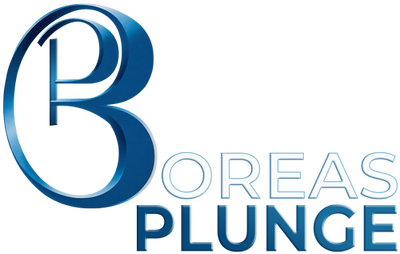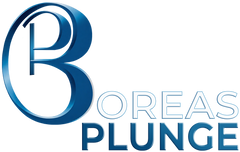Unlocking the Secrets of Muscle Recovery: Tips and Techniques for Faster Healing

In the high-stakes world of fitness and athletics, muscle recovery is often the unsung hero behind peak performance and injury prevention.
Understanding the science behind muscle recovery not only demystifies the healing process but also empowers athletes and wellness enthusiasts alike to optimize their recovery strategies.
This article delves into essential tips and techniques that can propel your recovery journey, highlighting how nutrition, rest, and lifestyle choices play pivotal roles in rejuvenating your muscles.
Whether you're an athlete pushing the limits or a health-conscious individual seeking to enhance your well-being, uncover the secrets to faster healing and elevate your performance.
View Our Luxury Cold Therapy Products 
Key Takeaways
- Understanding the science of muscle recovery is essential for enhancing athletic performance.
- Factors like hydration, stress, and age can significantly impact muscle recovery duration and effectiveness.
- Incorporating techniques such as foam rolling and active recovery can help accelerate healing.
- Nutrition plays a crucial role in muscle recovery, with protein and antioxidants being key components.
- Prioritizing rest and sleep is vital for optimal recovery and overall health.
Understanding Muscle Recovery: The Science Behind It
Understanding muscle recovery is crucial for athletes and fitness enthusiasts alike, as it not only maximizes performance but also prevents injuries.
The science behind muscle recovery encompasses complex physiological processes, including muscle repair, reduction of inflammation, and the restoration of energy levels.
Several common factors such as age, training intensity, and even stress can significantly influence recovery rates; thus, recognizing these variables is essential for optimizing results.
To accelerate muscle recovery, employing techniques like active recovery, foam rolling, and targeted stretching can enhance circulation and cut downtime.
Nutrition plays a pivotal role as well—prioritizing protein intake, hydration, and essential nutrients can drastically improve muscle repair and growth.
Equally important is the role of rest and sleep, which are foundational for enabling recovery processes to take place.
By establishing a comprehensive recovery plan that incorporates these elements, athletes can not only enhance their performance but also foster a more resilient and healthier body.
Common Factors That Affect Muscle Recovery
Muscle recovery is a crucial aspect of any athlete's training regime, encompassing a multifaceted process that helps the body repair and strengthen itself after exertion.
The science behind muscle recovery reveals that factors such as intensity of exercise, hydration levels, and diet play significant roles in shaping the recovery process.
Key strategies to optimize muscle recovery include incorporating dynamic stretching before workouts, utilizing foam rollers post-exercise, and ensuring sufficient protein intake to rebuild muscle fibers.
Additionally, techniques like cold water immersion and active recovery sessions can significantly accelerate recovery times.
Nutrition stands out as pivotal; meals rich in antioxidants and anti-inflammatory properties nourish the body and reduce oxidative stress.
Perhaps most importantly, adequate rest and quality sleep are not merely luxuries but essentials that foster hormonal balance and muscle regeneration.
For athletes and wellness seekers alike, understanding and implementing these principles can elevate performance, enhance resilience, and inspire an unwavering commitment to health and fitness.
'The difference between a successful person and others is not a lack of strength, not a lack of knowledge, but rather a lack in will.' – Vince Lombardi
View Our Luxury Cold Therapy Products 
Essential Tips for Optimizing Muscle Recovery
Optimizing muscle recovery is a crucial aspect of any athlete's regimen, ensuring not only peak performance but also long-term sustainability in their training journey.
To enhance muscle recovery, prioritize restorative sleep, aiming for 7-9 hours per night, as quality rest allows your body to repair and rebuild muscle fibers effectively.
Incorporating active recovery techniques, such as gentle yoga or low-intensity cardio, can stimulate blood flow and help reduce soreness, while nutrition plays a pivotal role; consuming a balanced post-workout meal rich in protein and complex carbohydrates fuels recovery.
Hydration is equally essential—dehydration can significantly hamper recovery, so ensure you maintain optimal fluid levels throughout the day.
Additionally, consider integrating mindfulness practices and deep stretching into your routine to manage stress and promote relaxation, which can further amplify your recovery efforts.
By embracing these strategies, athletes and wellness seekers alike can unlock their true potential and transform their training into a powerful, resilient lifestyle.
Techniques to Accelerate Muscle Recovery
To truly maximize your performance and maintain peak physical condition, understanding and implementing effective techniques for muscle recovery is essential.
Athletes and health-conscious individuals alike can benefit from a variety of strategies designed to expedite the healing process and enhance overall well-being.
One of the most powerful methods is active recovery, which includes low-intensity exercises that help to promote blood circulation and reduce muscle soreness.
Incorporating practices such as stretching, foam rolling, and yoga can also play a crucial role in alleviating tightness and preventing injury.
Nutrition, too, cannot be overlooked; consuming a balanced diet rich in protein, antioxidants, and omega-3 fatty acids will support muscle repair at a cellular level.
Hydration is vital; maintaining optimal fluid balance ensures that nutrients are transported efficiently throughout the body.
Moreover, innovative recovery tools like compression therapy, cryotherapy, and infrared saunas offer advanced options to expedite the repair process.
By embracing these techniques, you not only empower your body to recover more rapidly but also cultivate resilience and maintain long-term health in your athletic journey.
Nutrition's Role in Muscle Recovery
Nutrition plays a pivotal role in muscle recovery, a crucial factor for athletes, wellness seekers, and health-conscious individuals striving to optimize their performance and overall well-being.
After an intense workout, your muscles undergo stress and micro-tears, requiring a strategic influx of nutrients to repair and grow stronger.
Key macronutrients like high-quality proteins serve as the building blocks for muscle tissue, while carbohydrates replenish glycogen stores wasted during exercise, fueling the next training session.
Incorporating anti-inflammatory foods, such as berries, leafy greens, and healthy fats, can further enhance recovery by reducing muscle soreness and speeding up the healing process.
Hydration is equally vital; water aids in nutrient transport and the removal of toxins, ensuring that your body operates at its peak.
Embracing a well-rounded, nutrient-dense post-workout diet not only accelerates muscle recovery but also fosters a resilient mindset, empowering you to push your limits and achieve your fitness goals with greater intensity and enthusiasm.
The Importance of Rest and Sleep in Muscle Recovery
The importance of rest and sleep in muscle recovery cannot be overstated, as they serve as the bedrock for achieving optimal performance and long-term athletic success.
During periods of rest, the body engages in a remarkable healing process, repairing torn muscle fibers and replenishing energy stores depleted during intense workouts.
Adequate sleep, often regarded as the ultimate biohack for recovery, allows the body to release growth hormones that are vital for muscle regeneration and repair.
Not only does sufficient rest enable athletes to improve strength, endurance, and overall performance, but it also plays a crucial role in preventing injury and burnout.
In a world that often glorifies hustle and constant activity, embracing the pivotal role of recovery through sleep and downtime can be a transformational approach for wellness seekers and health-conscious individuals alike.
Remember, true progress is not just about pushing harder but also about giving your body the essential time it needs to recover and thrive.
Frequently Asked Questions
What is muscle recovery and why is it important?
Muscle recovery is the process your body goes through to heal and rebuild muscle fibers after physical exertion.
It's crucial because proper recovery prevents injury, reduces soreness, and enhances athletic performance, allowing you to train harder and more efficiently.
What factors can affect muscle recovery time?
Several factors can impact muscle recovery time, including the intensity and duration of your workouts, age, overall fitness level, nutrition, hydration, sleep quality, and individual genetics.
Being aware of these factors can help you tailor your recovery strategies.
What are some essential tips to optimize muscle recovery?
To optimize muscle recovery, focus on staying hydrated, incorporating active recovery days, using stretching and foam rolling techniques, listening to your body, and ensuring proper nutrition.
These practices can help reduce muscle soreness and improve healing.
How does nutrition play a role in muscle recovery?
Nutrition is vital for muscle recovery as it provides the necessary building blocks for muscle repair.
Consuming a balanced diet rich in proteins, carbohydrates, healthy fats, and vitamins can help fuel recovery and replenish energy stores post-exercise.
Why are rest and sleep critical for muscle recovery?
Rest and sleep are essential as they provide the body with the time needed to repair and regenerate muscle tissues.
During sleep, the body releases growth hormones that facilitate recovery, so aiming for 7-9 hours of quality sleep each night is important for optimal recovery.




